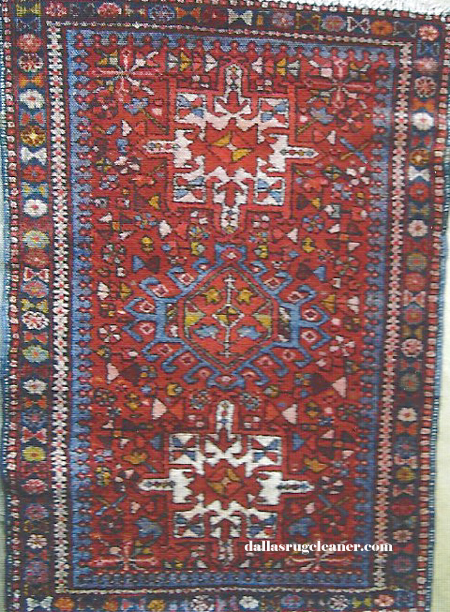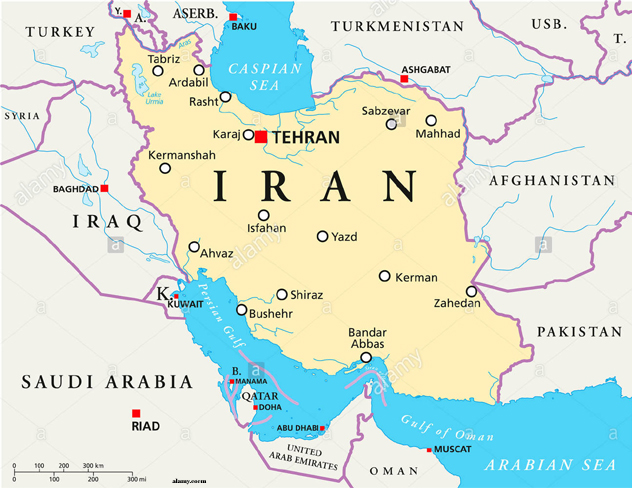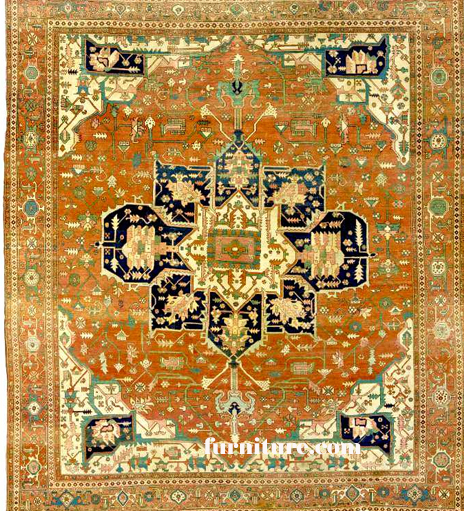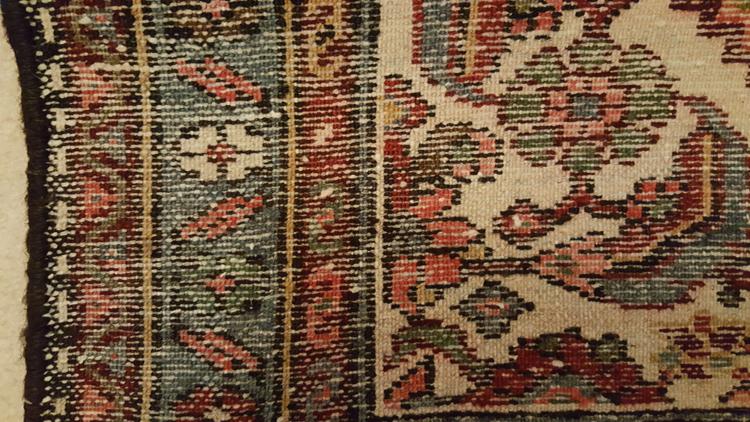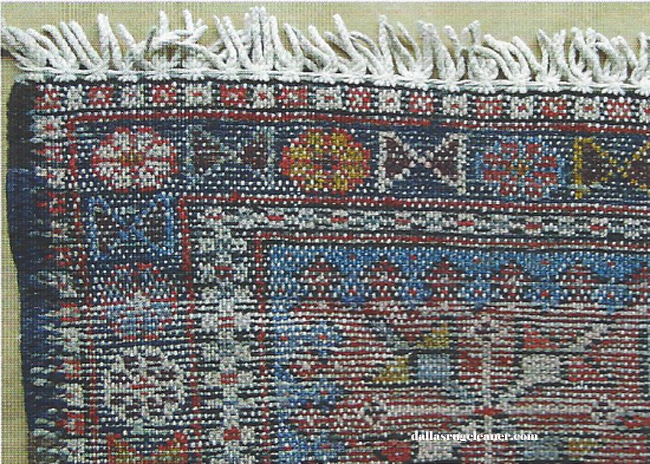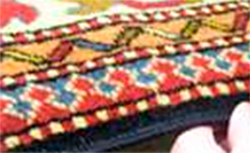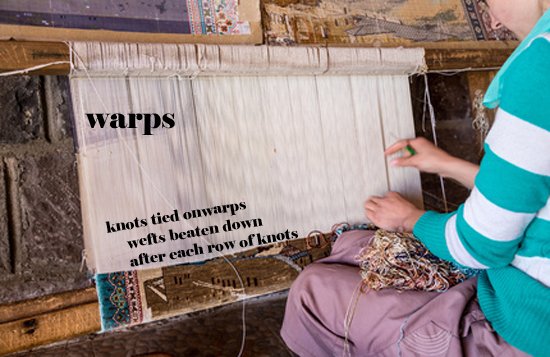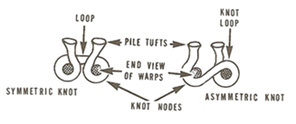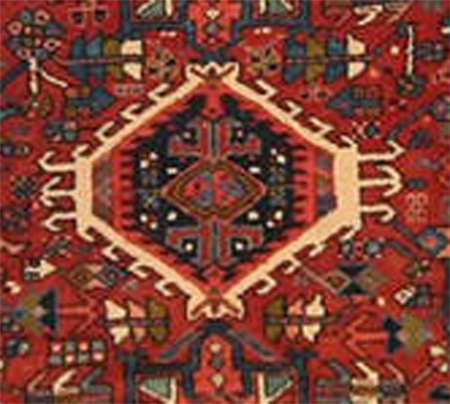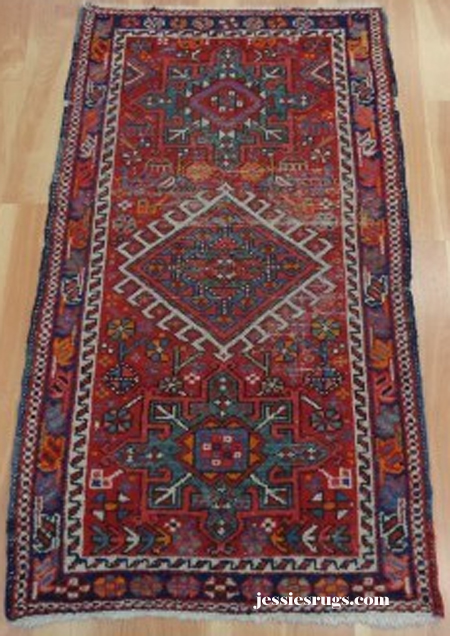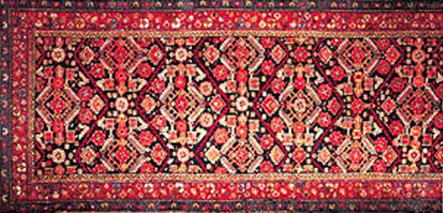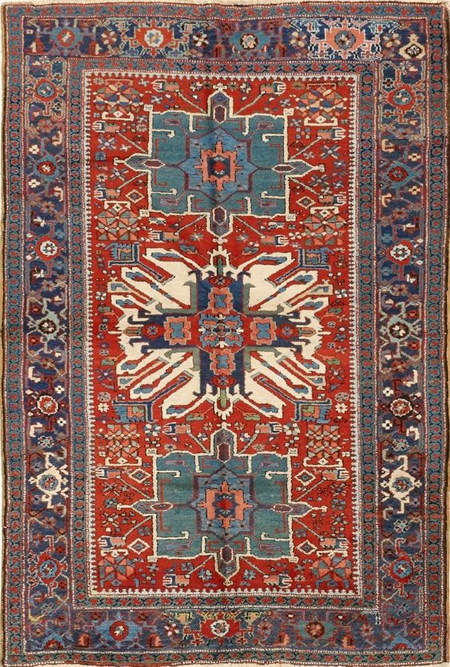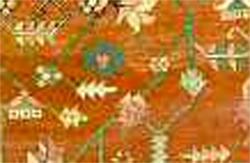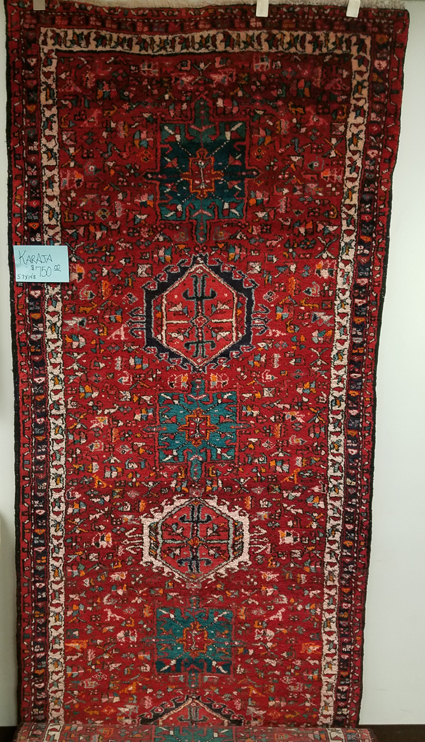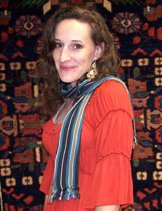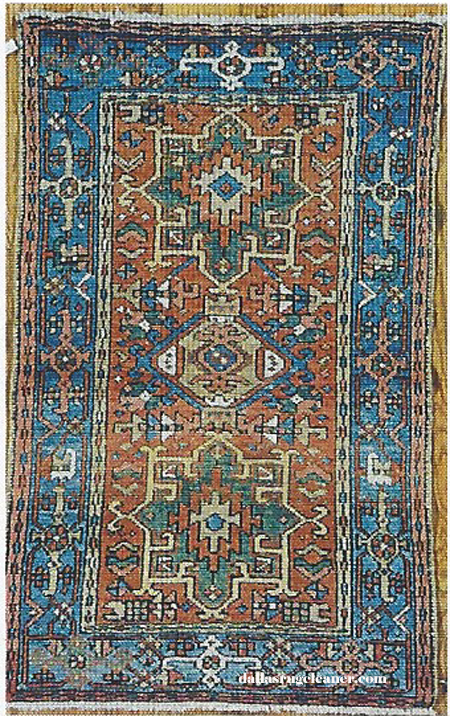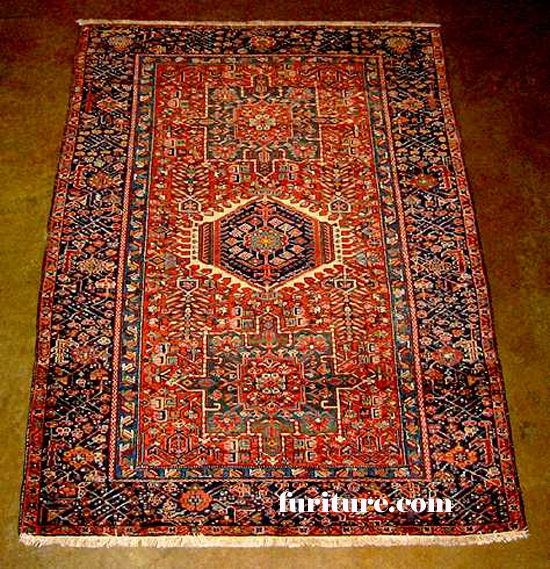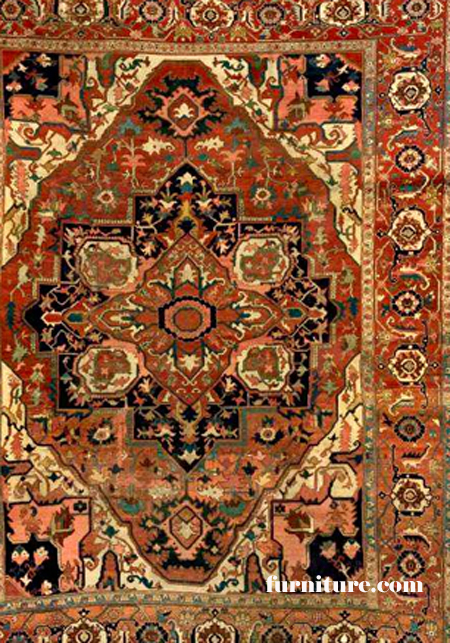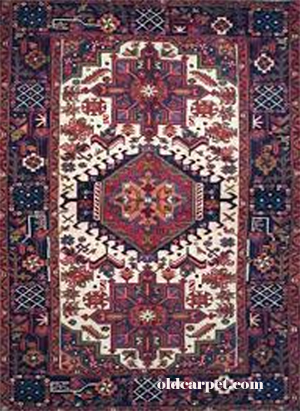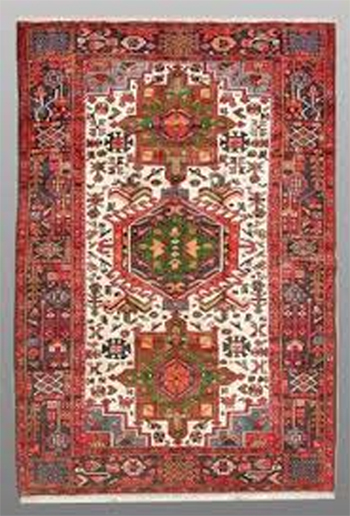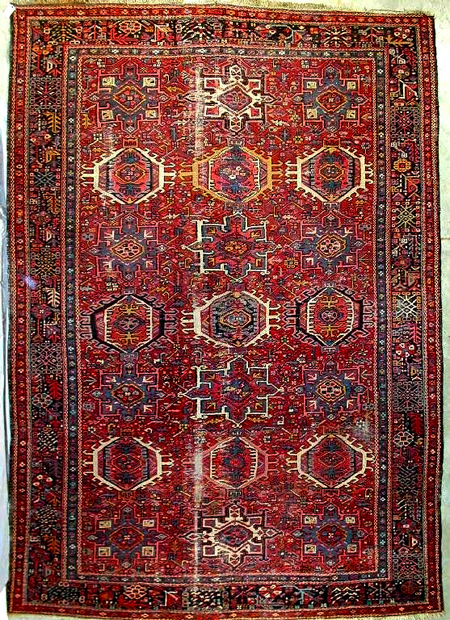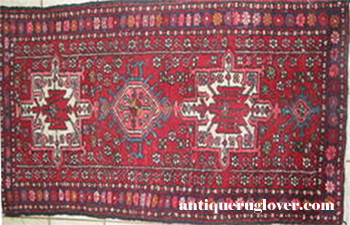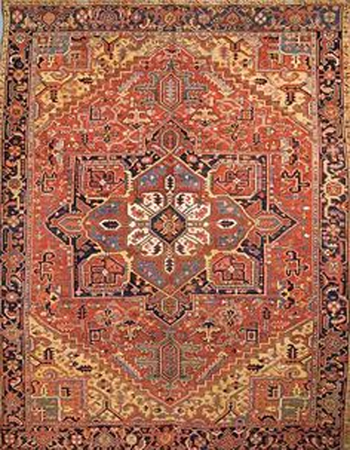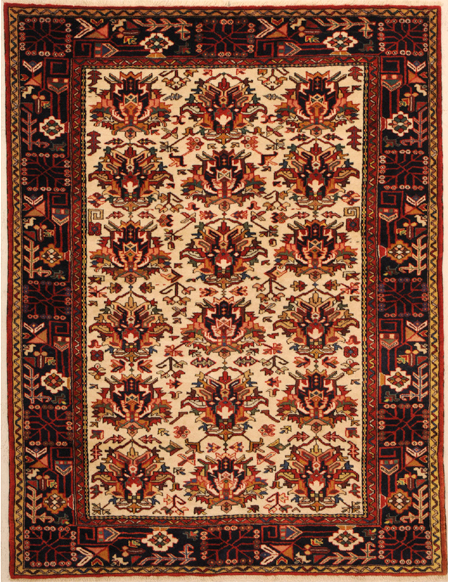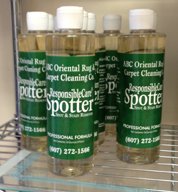KARAJA ORIENTAL RUGS
Karaja oriental rugs (also spelled Karadja, Gharadjeh, Qaraajeh, Gharajeh) are woven in a small, isolated village located in the NW region of Iran, about 35 miles from the weaving center of Tabriz. Access to the village is possible only by a single unpaved road.
These rugs are relatively easy to identify, though some of their designs and their construction can be mistaken for rugs from the nearby weaving areas of Heriz and Hamadan.
They often use a Heriz-like medallion design and their single-wefted construction is similar to Hamadan rugs. (The backs of single-wefted rugs feature every other warp exposed across the width of the rug giving a distinctive pattern of easily defined lines across the rug).
Nonetheless, upon closer inspection, Karaja oriental rugs can be seen to have specific construction and design features that make them quite unique.
CONSTRUCTION
Rugs woven in Karaja are similar to many of the rugs in the area as far as color, texture, and pile height, but, as mentioned above, they have some unique features, especially in regard to their construction and their designs (see below).
A loosely inserted single cotton weft, (yarn that is inserted from side to side), sometimes dyed blue or light gray, results in rugs that are completely smooth on the back side, quite unlike the rugs in neighboring weaving areas.
Karaja rugs also have heavy double-cord serging on the sides.
FOUNDATION
The foundation of the rug uses cotton for the warp (up and down yarns) and either wool or cotton for the wefts (side-to-side yarns).
PILE
The pile is made of handspun wool and is tightly constructed.
KNOT
The Karaja rugs use a symmetrical or Turkish knot (Ghiordes knot).
DYES
Pre-World War II Karaja oriental rug weavers used natural dyes. Today they are all synthetic.
ENDS
The fringed ends at the top are usually plain. The bottom fringes have twisted uncut loops.
COLORS
Older Karaja rugs usually have a terra cotta colored field as their dominant color with navy blue as a secondary color and green accents.
Newer Karaja rugs typically have a Christmas red field.
SIZES
Karaja rugs are typically woven in small to mid-sizes such as 4x6 to 8x10, though they can occasionally be found in larger sizes.
Long Karaja runners are some of the finest runners made in Iran.
DESIGNS & MOTIFS
A typical design used in Karaja oriental rug weaving features a brick or red field (sometimes rust) covered with repeating Heriz-style geometric medallions. Another design contains a latch-hook diamond flanked vertically by 2 medallions of simple geometric shapes.
Typical borders of these rugs usually have 3 stripes in navy or royal blue.
A common pattern consists of 3 or 4 very large diamond-shaped medallions extending from one end of the rug to the other.
Motifs are bold and can resemble insects, leaves, and crabs. Karaja rugs can also have floral-like motifs such as paisley or pear motifs usually placed inside diamond shapes.
KARAJA ORIENTAL RUGS TODAY
Karaja runners are some of the most common rugs made in Iran. Rugs from Karaja are generally of moderate quality but quite durable and affordable.
"The Cleanest Clean You've Ever Seen."
by
ABC Oriental Rug & Carpet Cleaning Co.
130 Cecil Malone Drive Ithaca, NY 14850
607-272-1566
ABC
Carpet & Rug
Spotting Guide
Learn how to remove spots with ordinary household solutions
Sign up below to gain access to your complementary Spotting Guide from ABC.
Registering your email address guarantees you will be notified whenever discount savings coupons become available.
Did you know that our ABC Responsible Care Spotter can get those pesky spots out of your carpet and rugs and will work equally as well on your clothes and upholstery?
Stop by our office and pick one up. They are $5.00 + Tax but if you have carpets or upholstery cleaned in your home or business, just request a free one from your Technician.
And don't forget to fill out the form above to download your free ABC Spotting Guide!
Oriental and Area Rug Washing at ABC Oriental Rug
Rugs on the wash floor are gently scrubbed before thorough rinsing.
Gentle scrubbing continues. Note the wringer in the background-the next step in the washing process after rinsing.
After thorough rinsing, the rug is sent slowly and carefully through the wringer to take out as much of the water as possible before being hung on racks in the drying room.
Rugs are hung on a rack in the temperature controlled drying room until completely dry.
